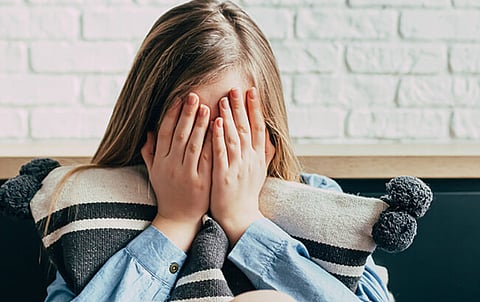
- Home
- Live Blog
- Breaking News
- Top Headlines
- Cities
- NE News
- Sentinel Media
- Sports
- Education
- Jobs

Dr. Rijusmita Sarma
(The writer is a counselling psychologist. Can be reached at 8638716076
Puberty is the time of transition from childhood to adulthood. It involves lasting physical, emotional, psychological, and social changes. It can be a period of overwhelm and confusion.
Puberty doesn’t always knock with mental health issues. But for some people, it might be a difficult time clubbed with mental health concerns.
Why does this happen?
There are several theories that attempt to explain the relation between puberty and mental health. Some of them are:
n Hormonal changes: Hormonal changes, an integral part of puberty, may significantly contribute to developing depression, anxiety, low self-esteem, and mood swings in adolescents.
n Stressful social changes: During puberty, adolescents also go through changes in the dynamics of social relationships and responsibilities. Prioritising peers over familial responsibilities, peer pressure, depending on external validation to define the sense of self-worth, etc. These experiences can be stressful.
n Early puberty: The average age of puberty has been decreasing drastically. Early puberty comes with difficulties like being unable to talk about it and feeling isolated, as they might look and feel different from other children. These might lead to mental health issues like depression, anxiety, eating disorders, substance use disorders, etc.
n Brain development: The adolescent brain is still developing. The brain doesn’t develop fully until a person’s mid-twenties (on average). Specifically, the prefrontal cortex, the part of the brain responsible for rational thinking, managing impulsivity, and emotional control, is not yet fully developed. As the person might not yet have the coping skills to manage their emotions and behavioural impulsivity, it can be an unpleasant and difficult experience.
n Physical development: According to research, specifically research published in The Journal of Affective Diseases, it revealed that physical changes experienced in mid-puberty increase depression rates more than other factors that were studied.
What are some common mental health concerns experienced during puberty?
n Stress: During adolescence, a person might find themselves more susceptible to environmental stressors. This could lead to increased irritability, anxiety, sleep disturbance, decreased concentration, etc.
n Risk-taking behaviour: Since the part of the brain responsible for rational thinking and managing impulsivity is still developing, there might be incidents of indulging in risk-taking behaviour. This might create distress as a consequence.
n Body image issues: In puberty, physical changes happen in ways that a person may like, may not like, or in ways that may draw unwanted attention. This might lead to feelings of unhappiness and dissatisfaction with their bodies. Social media, family, and peers may also contribute to body image issues.
nLow self-esteem: During puberty, self-esteem may develop through interdependence and external validation. During puberty, adolescents become more aware of themselves and how they are perceived by others. And when they do not feel validated by others, it may lead to low self-esteem. Low self-esteem is again related to increased anxiety and low mood.
n Poor decision-making: Decisions during this age may be more influenced by peer pressure and the need to be a part of the group rather than being well-informed and conscious.
n Conflicts at home and school: Adolescents may start seeking more independence from parents or authorities, leading to conflicts.
n Early sexual experimentation: Experiences like these may contribute to distressing consequences and increased vulnerability to sexual exploitation.
How can we (adults) help them?
n Learning to identify signs of distress: persistent change in mood and behaviour, lack of interest in hobbies, obsessive or extreme behaviours, changes in sleep and eating patterns, social withdrawal, risky/self-harm behaviour, etc. could be signs that need to be taken into consideration.
n Initiating conversations: It might be difficult for adolescents to communicate about their experiences. However, we as adults can make attempts (gently) to initiate conversations and listen to their difficulties. Listening to them attentively and without judgement can be extremely helpful. Conveying advice at appropriate times and in ways that do not threaten their autonomy is crucial.
n Encouraging balance: Encouraging habits that create balance, be it in creating a healthy lifestyle, improving interpersonal skills, problem-solving skills, decision-making, etc., can be helpful.
n Being calm: As already discussed, emotional overwhelm and a lack of skills to cope with them might lead to emotional outbursts and behavioural difficulties. During those times, as adults, we need to remain calm and stable to provide them with a sense of safety. This support can help them sail through the temporary yet difficult and unpleasant experiences.
n Seeking help: If the difficulties are persistent, distressing, and/or create dysfunction, seeking professional help is crucial. Visiting a mental health professional can help develop a better understanding of the situation and enable learning coping skills to deal with it.
Puberty can be a stormy experience. But as adults, we can provide adolescents with the anchor they can rely on and hold on to. This can help them not only survive but flourish through their adolescence.